In Pakistan’s northwest, mosque and temple share centuries of harmony
PESHAWAR: In the bustling, historic heart of Peshawar, where centuries of faith and culture converge, two sacred buildings stand face to face within the ancient Gor Khatri complex, separated by only a few meters, yet united by generations of shared history.
On one side stands the Goraknath Mandir, a centuries-old Hindu temple: on the other, the Abu Hanifa Mosque. Their sun-streaked walls hold stories of coexistence and quiet respect in a region too often defined by its struggles.
For as long as anyone can remember, the rhythms of life here have been intertwined. According to the temple’s head priest and elder, Umair Kaka Ram, his family has tended this temple for at least four centuries.
“My great-great-grandfather, my great-grandfather, my grandfather, my father, and now us,” he told Pakistan TV Digital, seated on the temple steps. “We have spent so much time here, it’s beyond measure.”
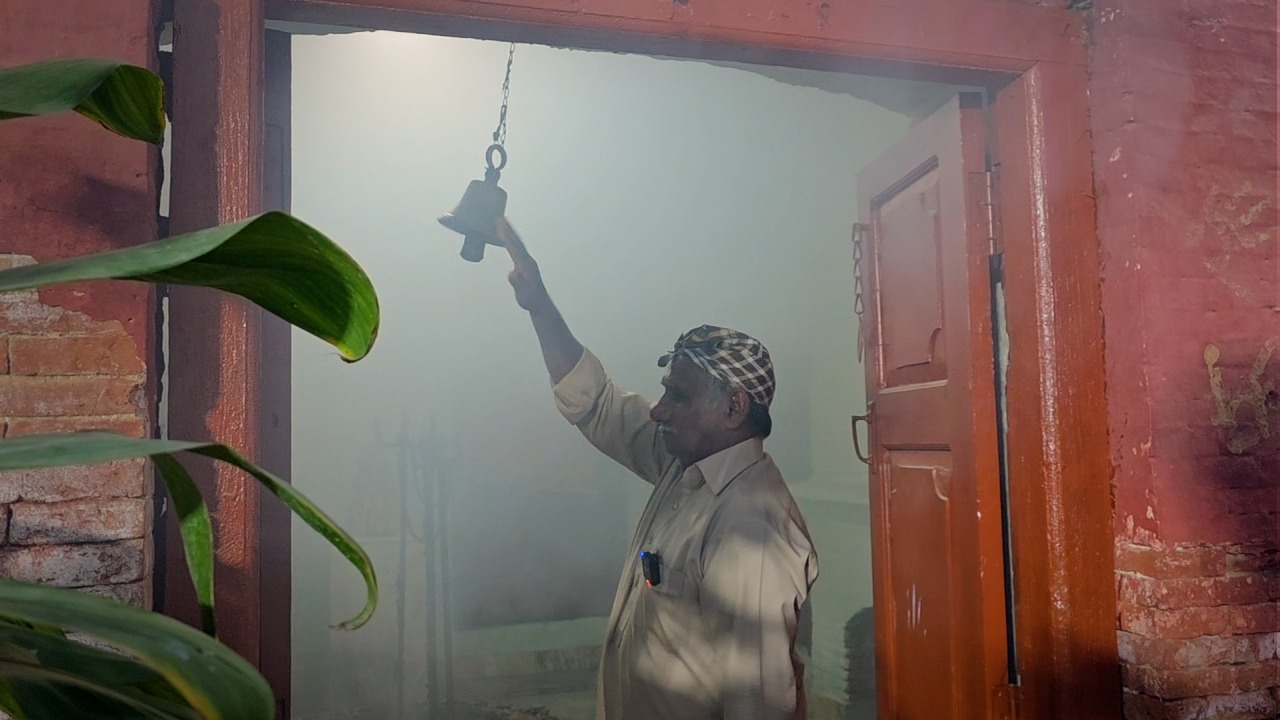
He believes the temple’s origins stretch back more than 600 years. A lineage preserved through oral history and family record. Even the name Gor Khatri carries that spiritual legacy.
“It comes from Guru Gorakhnath, a revered healer who once set up his camp here,” Umair explains. “In Hindko, a shop is called hatti. Over time, Gorakh di Hatti became Gor Khatri.”
Fragrance of faith
Inside the temple, the air is thick with the sweet, smoky scent of incense. Sticks burn quietly in corners and along the altar, their ribbons of smoke curling toward the ceiling. The space hums with the gentle rhythm of bells, chants, and footsteps. A soundscape of devotion that has endured through centuries.
Across the courtyard, the Abu Hanifa Mosque offers a different kind of serenity. Most of its worshippers have lived in the area for generations, and that sense of belonging fills the air before prayers. Men greet each other with warm handshakes, hugs, and familiar questions about family and health, the small rituals of a community deeply rooted in place.
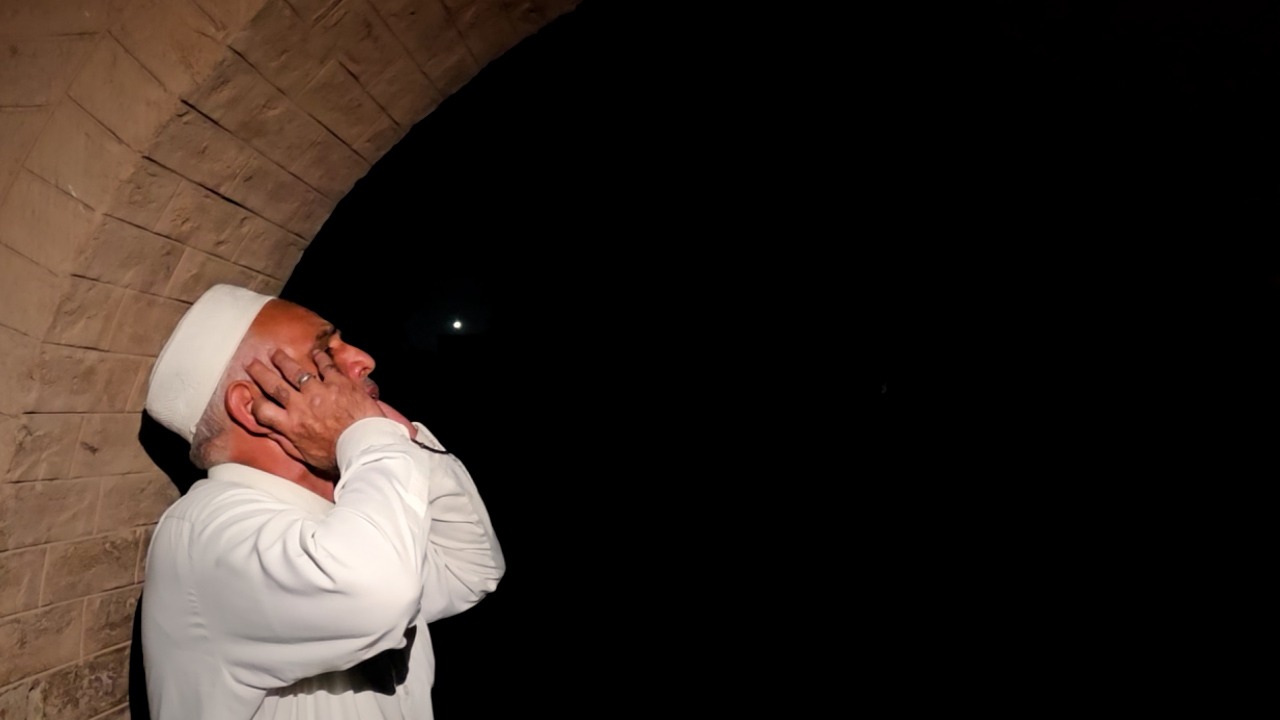
“We have all grown up together here,” says Asad, a local resident who has prayed at the mosque since childhood, while speaking to Pakistan TV Digital. “The Hindus worship there in peace, and we worship here in peace. There’s no threat, no fear, just respect.”
Worship in harmony
At dusk, as the day fades into amber light, Gor Khatri reveals its most poetic scene. The temple’s evening puja begins, bells ringing, hymns rising, when suddenly, the Azaan for Maghrib prayers echoes from the mosque.
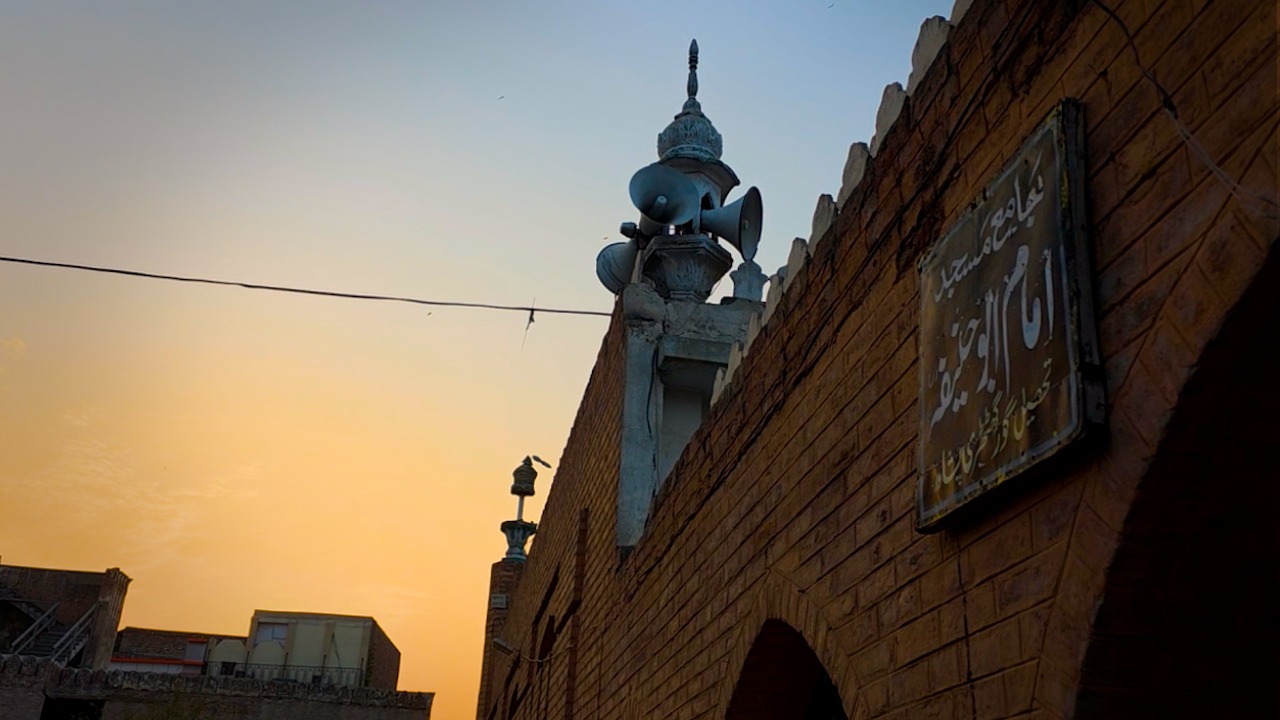
Then, silence.
“When the Azaan starts, we stop our worship,” says Umair softly. “We wait until it’s finished, out of respect.”
The music halts mid-note; even the incense smoke seems to pause in the still air. When the last words of the call to prayer fade, the temple’s melodies resume.
For the people here, this moment of mutual reverence isn’t performance. It’s tradition.
Quiet understanding
Qari Muhammad Zahir Shah, the Imam of the Abu Hanifa Mosque, smiles when asked about the temple across the courtyard.
“There has never been even a minor issue between us,” he says. “We cooperate as neighbors and as fellow citizens. If there’s ever a small matter to discuss, we solve it together. Life goes on peacefully.”
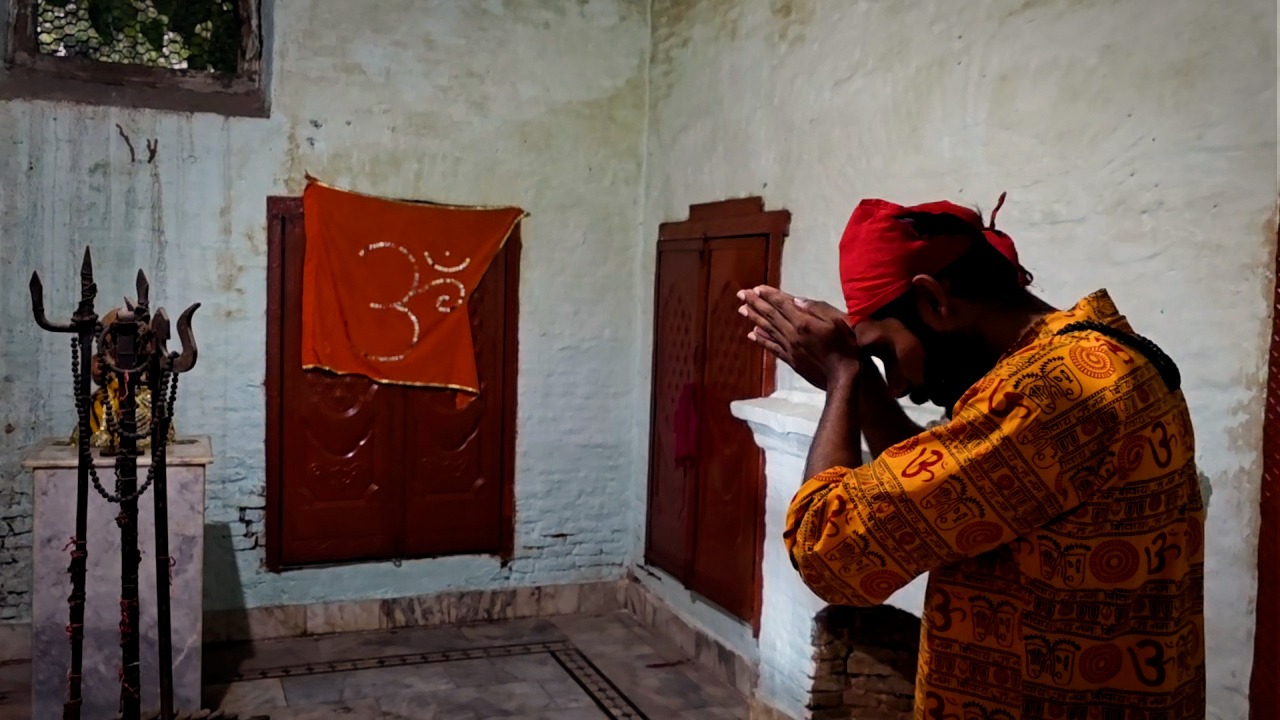
Both leaders, the Imam and the Matadhish, say their relationship is built on communication and understanding. While their daily routines rarely overlap, they remain in touch regularly.
“We are on very good terms,” Umair says. “Whenever we have a festival, the Muslim community helps us in every way they can.”
The Imam nods in agreement
“They are part of our community. We all look out for each other.”
The local government provides security for the temple, a recognition of its historical and cultural importance. The Imam notes it with a wry smile, not as a complaint but as an acknowledgment of the site’s shared heritage.
Harmony preserved
Locals insist that Gor Khatri has never witnessed tension between its communities. Instead, it remains a rare example of interfaith coexistence that feels both ancient and alive.
Once a bustling caravanserai, the complex, now dotted with archaeological relics, holds the layered story of Peshawar: a city that has hosted traders, saints, invaders, and believers of every creed. Amid its long and turbulent history, the peace of Gor Khatri endures quietly, tended by those who see faith not as division but as connection.
As dusk deepens, the Azaan once again meets the temple bells, two voices rising together from Pakistan’s northwest, echoing across stone walls and open hearts. In this small corner of Peshawar, coexistence isn’t an ideal. It’s simply a way of life.
Latest News
Jaishankar, Rubio discuss critical minerals, strategic partnership in Washington
43 MINUTES AGO
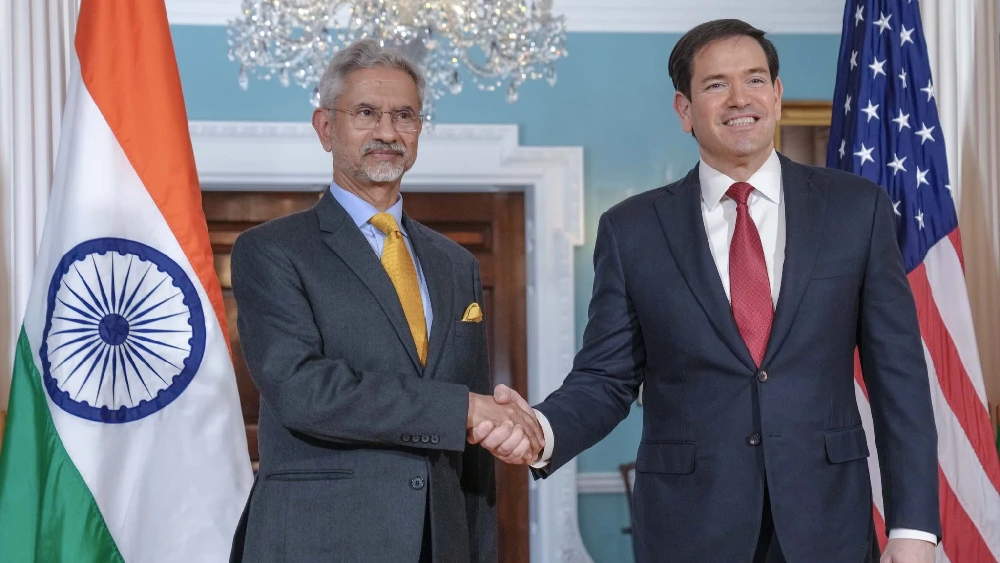
Russia resumes large-scale Ukraine strikes in freezing weather
5 HOURS AGO
.jpg)
Balochistan attacks: UNSC condemns ‘heinous, cowardly’ terrorists
5 HOURS AGO
.jpg)
Son of Libya's late ruler Kadhafi killed by armed gang
7 HOURS AGO
Erdogan, Saudi Crown Prince review prospects for improving bilateral ties
8 HOURS AGO
.jpg)
